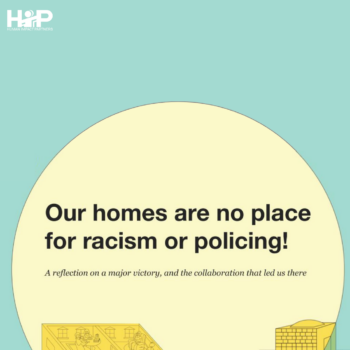| By Celia Harris |
The Environmental Protection Agency has an Office of Civil Rights, designed to ensure that agencies receiving EPA funding not discriminate against certain groups of people.
When I recently heard this, I was glad to think that the EPA was carefully protecting communities from discrimination. But then I learned this office has done a really bad job carrying out its mission.
The Center for Public Integrity recently released a series of stories describing EPA’s failure to comply with Title VI of the Civil Rights Act of 1964, which is “a federal law that prohibits discrimination on the basis of race, color or national origin in all programs or activities receiving federal financial assistance.” Their findings are unsettling. Among the 253 civil rights complaints filed since 1996 that The Center for Public Integrity was able to obtain:
- 162 cases were rejected by the EPA without investigation;
- 52 were dismissed upon investigation;
- 14 were referred to other agencies including the departments of Justice, Health and Human Services, and Transportation;
- 12 were resolved with voluntary or informal agreements; and
- 13 were accepted for investigations that remain open today (and the oldest begun in 1996!)
In its 22-year history of receiving environmental discrimination complaints (which is the reason the office is in place), the office has never once made even one formal finding of a Title VI violation. Nine out of every 10 times communities have turned to EPA’s Office of Civil Rights for help under Title VI, the office has either rejected or dismissed their complaints. For that other 10% that were investigated, the office dismissed cases more often than it proposed mitigation measures.
Of the 31 complaints filed in California since 1996, only 11 were accepted for investigation, and three of these investigations are still ongoing. Two of these still-pending cases are right here in the Bay Area. In Pittsburg, CA, an April 2000 complaint claimed that local regulatory agencies discriminated against residents by locating two power plants in already environmentally burdened areas where residents have high rates of asthma and cancer.
In West Oakland in 1997, a community organization filed a complaint against the California Department of Toxic Substances Control (DTSC) for approving an inadequate cleanup plan for soil and groundwater contamination discovered during the siting and construction of the new I-880 Freeway route through West Oakland, and for not enforcing the plan. This segment of freeway, a replacement of the former freeway destroyed by the 1989 Loma Prieta Earthquake, was completed later in 1997. Community representatives claimed that due to a long history of government agencies ignoring them, they had already faced extensive contamination and toxic exposures due to a high density of industry in their community.
The Center for Public Integrity’s full series investigating this issue is located at https://www.publicintegrity.org/environment/environmental-justice-denied. On that website there’s a tool where you can look up complaints filed in each state and their outcomes. You can also view the actual complaint submission documents and other correspondence between the complainant and the EPA Office of Civil Rights.
These complaints are cries for help from communities of color that are concerned about an overburden of environmental health hazards. It’s great that a structure is set up at the federal level to protect these communities; however, the fact that this EPA office is not resolving the issues or even appearing to try, is not so great. I’m not saying that each and every complaint is justified – I’m not familiar with all of them. But I do know that environmental injustices are common in disadvantaged communities and pose a threat to public health. These communities deserve to count on having a team of government experts on their side when corporate interests and the status quo are not.
Perhaps spurred by the Center for Public Integrity investigation, on September 10 the EPA Office of Civil Rights released a Draft External Compliance and Complaints Program Strategic Plan for public comment, claiming its purpose is to strengthen their civil rights compliance program.




